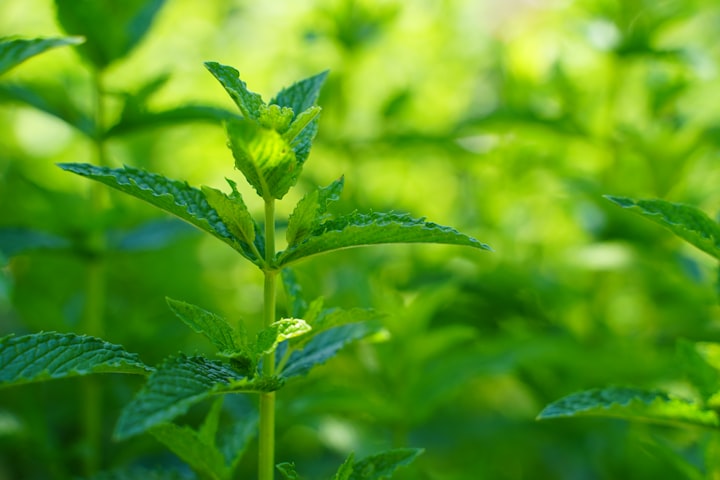Is lemon balm invasive, deer resistant and safe for dogs and cats?
Is lemon balm edible?

Is lemon balm invasive, deer resistant and safe for dogs and cats?
Is lemon balm edible?
Is lemon balm invasive and edible
Lemon balm (Melissa officinalis) is a herbaceous plant that belongs to the mint family. It is known for its lemon-scented leaves and is often used in cooking, herbal teas, and as a medicinal herb.
Is lemon balm invasive and edible
Regarding its invasiveness, lemon balm can be considered invasive in certain regions. In some climates and conditions, it has a tendency to spread rapidly through self-seeding and underground rhizomes, which can make it difficult to control. As a result, it can outcompete native plants and become a nuisance in the garden.
Is lemon balm invasive and edible
However, its invasiveness may vary depending on the specific location and climate. In some areas, it may not be as problematic. It's always a good idea to check with local agricultural extension offices or horticultural experts to determine the plant's behavior in your region.
Is lemon balm invasive and edible
Regarding its edibility, yes, lemon balm is edible and safe to consume. The leaves have a pleasant lemon flavor, which makes them a popular addition to salads, desserts, and beverages. Lemon balm tea is especially well-known for its calming and soothing properties.
Is lemon balm invasive and edible
As with any foraged or wild edible plant, it's essential to positively identify the plant and ensure it's free from contamination before consumption. Additionally, if you are pregnant, nursing, or have specific health conditions or concerns, it's best to consult with a healthcare professional before using lemon balm medicinally.
Is lemon balm invasive and edible
If you're interested in growing lemon balm in your garden, you can do so in containers to prevent it from spreading uncontrollably. Regular harvesting can also help keep it in check and promote bushier growth.
Is lemon balm deer resistant?
Lemon balm (Melissa officinalis) is generally considered to be deer resistant. Deer tend to avoid plants with strong scents, and lemon balm has a powerful lemon fragrance, which is typically unappealing to deer.
Is lemon balm deer resistant
While no plant can be guaranteed to be completely deer-proof, lemon balm is often overlooked by deer when browsing for food in gardens and landscapes.
Is lemon balm deer resistant
However, it's important to note that deer behavior can vary depending on the region, the availability of other food sources, and the deer population's size. In times of extreme hunger or when other preferred food sources are scarce, deer may be more likely to nibble on plants they would typically avoid.
Is lemon balm deer resistant
If you live in an area with a high deer population, it's always a good idea to diversify your garden with a mix of plants that are known to be deer resistant.
Is lemon balm deer resistant
Add Other preventive measures like using repellents, fencing, or other deer deterrent strategies. This will help reduce the likelihood of deer damage to your garden.
Is lemon balm safe for cats and dogs?
Lemon balm (Melissa officinalis) is generally considered safe for cats and dogs when used in moderation. The herb is non-toxic to pets, and its leaves are commonly used in pet products like cat toys, dog treats, and herbal remedies for pets.
Is lemon balm safe for cats and dogs?
Some pet owners even plant lemon balm in their gardens as a safe and natural addition to their pets' environment.
Is lemon balm safe for cats and dogs?
Lemon balm is known for its calming properties in humans, and it may have similar effects on some cats and dogs. Some pet owners use lemon balm as a natural remedy to help their pets with anxiety or stress.
Is lemon balm safe for cats and dogs?
However, it's essential to consult with a veterinarian before using any herbal remedy or supplement for your pets, as individual animals may have different sensitivities or reactions to certain herbs.
Is lemon balm safe for cats and dogs?
While lemon balm is generally safe, feeding large amounts of any herb to pets may cause digestive upset. It's best to offer it in small quantities and observe how your pet responds. If you notice any adverse reactions, discontinue use and consult your veterinarian.
Is lemon balm safe for cats and dogs?
As with any plant or herbal product, it's crucial to be cautious about other plants in the area that might be toxic to pets. Before introducing any new plant into your pet's environment or diet, research its safety or consult with a veterinarian to ensure it won't harm your furry friend.
I may receive compensation for any purchases made through affiliate links in this article.





Comments
There are no comments for this story
Be the first to respond and start the conversation.